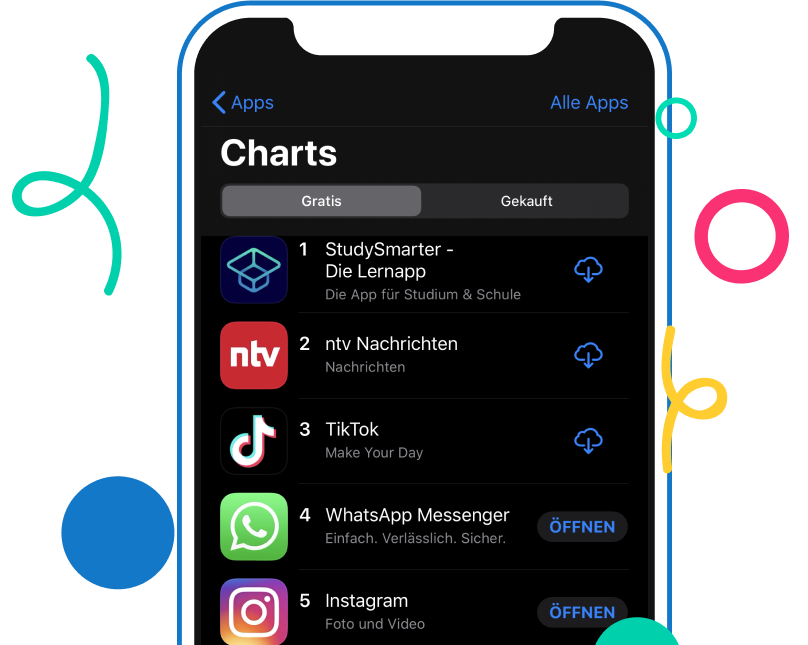When You Need to Write a Scholarship Application Letter
If there’s one thing that sounds like a nightmare to any student, it’s writing various application letters. These pieces of writing have a strict form, their readers nurture a set of expectations on what they want to read, and tons of students are writing more of the same. Welcome, folks, to the scholarship application drama. Did I say drama? I meant course. There’s nothing dramatic about scholarships, is there? *checks notes nervously*
Just as you thought you were done with the hard work (finding the right university for yourself, applying, going to interviews, filling out forms, or taking an entrance exam), you find out you have to repeat the process with a scholarship application. Yay!
The first thing you need to check is which scholarships you can apply for. There is a wealth of scholarships out there, elusive as they are, but you will find that you’re likely not eligible for all of them. Depending on your course of study, degree (bachelor, master, doctoral, etc.), GPA, and social and political engagement, you will have to filter your options to find possible solutions. And then the drama starts.
Is There Such a Thing as a Scholarship Application Form?
To cut straight to the chase, the answer is yes and no. There is no such thing as a completely specific scholarship application form (don’t trust those websites selling you one), but there are certain aspects that’ll be the same in each application. You can learn to manipulate those aspects to bring out the best of your experience and knowledge and then write a convincing motivation letter.
There, I’ve said the dreaded word: the key component of many scholarship applications is a motivation letter, and we’re here to dispel any myths surrounding this mystical document.
But, let’s start with the form:
- Personal data. At the beginning of every scholarship application, you must provide your personal information, unless specified otherwise (some institutions may want blind applications, but that is rare). Provide your name, address, means of contact (email/phone number), and possibly the department where you study.
- Information about the recipient. If you’re applying through your university, this will be the main address and the office you’re applying to (e.g. Scholarship Office, University of Better Tomorrow, No 15, Tomorrow Street, 19494 Future). On the other hand, you can apply to various foundations directly, and in this case, you’ll write their address. If you know the name of the person directly responsible for scholarship applications, write that first. Format the two lines of address into two parallel columns: your name in the left corner and the institution in the right.
- What you’re applying for. While DUH! While it is obvious, it is still common practice to write a bolded line like: Application for XYZ Scholarship at ABC Institution.
- Dear Sir or Madam … Although this form of address seems to be going out of style, you can still use it, or you can go for the ‘to whom it may concern’ variant. Again, if you know who’s directly responsible for applications, address the letter to them with proper honorifics (Dr, Prof, etc.)
Once these pesky formalities are out of the way, you can start working on your letter.

Scholarship Application – Examples of Good Practice
So, how do you write a proper scholarship application letter? Words like structure, strong vocabulary, and convictions come to mind, and you will need all of them for a successful motivation letter. Before you start, however, you should spend a decent amount of time brainstorming your strengths and how you wish to present them.
The key element of a successful scholarship application is the relevance of your points regarding the open call. For instance, if the scholarship is purely merit-based, you’ll want to highlight your achievements and faculties. On the other hand, if the scholarship is offered by a political foundation, you should provide examples of your engagements that demonstrate how your beliefs align with the ideals of the said organisation.
This does not mean that you need to change your entire personality to fit the proposed standards of a particular organisation – you must, first and foremost, be loyal to yourself. Anything else will appear dishonest. Nevertheless, you should write a list of your most relevant characteristics that correspond to the scholarship requirements. When that is done, you just need to arrange them.
Here’s how:
- Introduction. Your motivation letter needs a firm, attention-grabbing introduction. Present yourself and your qualifications in several sentences, and reiterate what you’re applying for.
Example: My name is XYZ, and I am a graduate of ABC school, where I attended X course of study (e.g. sciences and mathematics). I would hereby like to express my interest in the scholarship offered by [selected institution].
- Details about you. One thing you don’t want to do in your scholarship application letter is go on a long-winded personal history. If you’re bringing examples from your childhood, they’d better be extremely related to your reason for studying a particular subject. For instance, if your ant farm tipped over and the ants refused to leave it, you can call that a good inspiration for studying the social behaviour of ants. However, if you study German literature, leave the ants be.
What you should write in this section is a rundown of your most notable accomplishments, which, put together, provide a good reason for you to apply for this scholarship. For instance, you can list a particularly good paper you’ve written, any volunteering you’ve done, and your desire to truly devote your time to your studies, which will be facilitated by obtaining this scholarship.
Scholarship committees are often impressed by extracurricular activities, so I suggest that you elaborate on those. However, don’t go listing everything you’ve ever done (your CV does that for you anyway). Rather, select a few examples and emphasise what you have learnt in the process of participating in this activity and how that is relevant for your studies. For instance, if you’ve volunteered abroad, you’ll have learnt the ropes of international cooperation, deepened your understanding of different cultures, and learnt how to take charge in difficult situations – skills which have proven useful in your study field (e.g. international politics, cultural studies, business administration, etc.). Underscore any internships you may have done, courses and certifications you have, or competencies you can apply across various disciplines, e.g. soft skills.
- Why you’re the right fit. Sometimes you need to truly bring out what makes you the perfect candidate for this scholarship. As explained before, if your scholarship committee belongs to a particular foundation, you need to research this organisation and find connection points with their ideals and beliefs. If you’re applying for a more general scholarship, reiterate your greatest strengths, as well as how you might benefit from the award apart from money – for example, through networking events that scholarship-holders attend, or courses and trainings you could partake in.
- Conclusion. Conclusions don’t need to be too long – after all, the motivation letter hardly ever exceeds two pages, and nobody needs to be reminded of every detail after reading that. However, in your conclusion, you can repeat your most important point(s), and thank the scholarship committee for their consideration. Generally, you can also say that you’d be available for an interview, or provide any additional information should it be necessary.
- Sincerely yours … Sign your motivation letter off with your name, print it out, and add your signature. Nowadays, most universities and foundations are happy with digital signatures, but you should check the requirements and see whether it’s specified that you need to sign with your hand.
Piece of cake, right? 😉
General Scholarship Application
Many universities open an annual call for general scholarship applications. The deadline for such applications is usually at the beginning of the year, although it varies from one university to another – check the relevant website to be on the right track.
General scholarship applications are favourable, as you can repurpose your older scholarship essays with some tweaks, thus saving time. Furthermore, they typically do not come with any specific requirements in terms of social and political engagements, making it easier to write essays for them.
The same rules apply for such an application: The structure should be clear and easy to follow. Make sure to emphasise your achievements to demonstrate why you deserve the scholarship and how you’ll benefit from it.
Application for Scholarship in College – Pro Tips
There are ways of improving your scholarship application and making it easier to write. Follow these tips to make the most out of your application:
- Applications can be repurposed. You can hardly change your past achievements or basic information about yourself. Once you’ve written your first letter, you’ll be able to use it for future applications, with details altered to fit each call.
- Read the call carefully. Lots of scholarship calls already tell you what they want to hear. Be sure to read through all the requirements carefully, as they might dismiss you if they feel you’re not following the rules. For instance, if a particular organisation wants you to emphasise the importance of extracurricular activities, you shouldn’t dwell on school achievements too much.
- Do not paraphrase your entire CV. They want to know you as a person, and they already have your CV.
- Pay attention to detail. As in, spellcheck, proofread, have others proof it too, and be receptive to feedback. Don’t be kicked out of the race because you were too lazy to use commas properly.
- Write your letter yourself. I know there are people and places that offer to write your essays for money, but a third party can never write an authentic letter for you. You might resort to some help with editing, but there are no shortcuts to scholarships.
- Personalise the letter. Your personality needs to shine through – whether through examples you provide, your personal ambitions, or even the turn of phrase, the letter should show who you are.
- Show what you’ve learnt. For every detail you provide, show what you’ve learnt from the given experience, as well as how you intend to apply it later.
Last but not least, do mind the deadlines (tardiness is not tolerated) and make sure all accompanying details and documents are included in your application.
Why No Scholarship Application Sample Ever Works – And What Does?
To briefly recap, lots of scholarship applications include writing a motivation letter or essay along with providing relevant documents outlining your academic and personal successes. Writing a scholarship application letter, daunting though it is, is not that difficult once you’ve got the hang of it. One thing you should be wary of are various online templates and samples. Most of the time, these are generic letters that don’t say anything about you and do not fit the criteria of the scholarship you’re applying for.
Here are the things that do work when you’re applying for a scholarship:
- Demonstrable academic and personal accomplishments.
- Firmly structured letters with clear transitions.
- Strong vocabulary. Ditch do and get; go for obtain, perform, highlight, explicate, etc.
- Relevance. Always remember that whatever you bring up in your scholarship application letter must be relevant to the call.
- Personality. The committee should learn about you in the process of reading your letter: your strong characteristics, interests, values, and ambitions.
Good luck!












